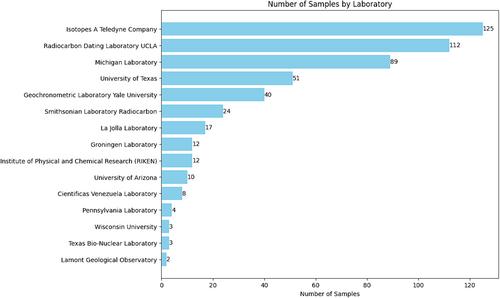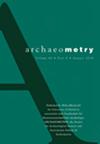放射性碳年代测定的进展:概述其对墨西哥考古学的影响
IF 1.5
3区 地球科学
0 ARCHAEOLOGY
引用次数: 0
摘要
在这篇文章中,我们简要回顾了墨西哥和中美洲放射性碳年代测定技术的发展历程。我们探讨了最早采用放射性碳年代测定方法的先驱者的贡献,他们的贡献促成了墨西哥加速器质谱实验室的建立。这项研究强调了该实验室在墨西哥考古调查中形成年代框架的关键作用。此外,我们还介绍了两个值得注意的案例研究--Chiquihuite 洞穴和 Golondrinas Chasm--它们是在墨西哥当代考古实践中成功应用放射性碳年代测定和贝叶斯分析的典范。本文章由计算机程序翻译,如有差异,请以英文原文为准。

Advancements in radiocarbon dating: An overview of its impact on Mexican archaeology
In this article, we provide a concise historical summary tracing the evolution of radiocarbon dating techniques in Mexico and Central America. We explore the contributions of early pioneers who first employed radiocarbon dating methods, leading to the establishment of a Mexican accelerator mass spectrometry laboratory. The study highlights its pivotal role in shaping chronological frameworks for archaeological investigations in Mexico. Additionally, we describe two noteworthy case studies—Chiquihuite Cave and Golondrinas Chasm—as exemplars of successful applications of radiocarbon dating and Bayesian analysis in contemporary archaeological practices in Mexico.
求助全文
通过发布文献求助,成功后即可免费获取论文全文。
去求助
来源期刊

Archaeometry
地学-地球科学综合
CiteScore
3.60
自引率
12.50%
发文量
105
审稿时长
6 months
期刊介绍:
Archaeometry is an international research journal covering the application of the physical and biological sciences to archaeology, anthropology and art history. Topics covered include dating methods, artifact studies, mathematical methods, remote sensing techniques, conservation science, environmental reconstruction, biological anthropology and archaeological theory. Papers are expected to have a clear archaeological, anthropological or art historical context, be of the highest scientific standards, and to present data of international relevance.
The journal is published on behalf of the Research Laboratory for Archaeology and the History of Art, Oxford University, in association with Gesellschaft für Naturwissenschaftliche Archäologie, ARCHAEOMETRIE, the Society for Archaeological Sciences (SAS), and Associazione Italian di Archeometria.
 求助内容:
求助内容: 应助结果提醒方式:
应助结果提醒方式:


